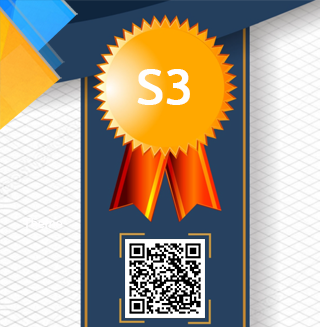The Effect of Health Education on Public Knowledge in the Use of Antibiotic Drugs
DOI:
https://doi.org/10.25311/keskom.Vol8.Iss1.1165Keywords:
Antibiotics, resistance, public knowledge, counselingAbstract
One of the diseases that is a problem in developing countries is an infectious disease. Along with this, the use of antibiotics cannot be avoided as drugs that are important in the treatment of infections caused by bacteria. On the other hand, the use of antibiotics without a doctor's prescription can lead to antibiotic resistance. Therefore, we need an education and optimization of the community's ability with regard to drug use techniques. The purpose of this study was to analyze the level of public knowledge of using antibiotic class drugs in North Poleang District, Southeast Sulawesi Province. Thus, people need to understand that in health services, antibiotics must be used appropriately and rationally, in order to achieve an effective treatment effect. The research was conducted in North Poleang Subdistrict for two months, from January 2021 to February 2021. This was a quasi experimental study with a one group pre-test or post test study design. The results showed that there was no significant relationship between age and public knowledge in the use of antibiotic class drugs in Poleang Utara District, Bombana Regency the p-value 1,000, there was a significant relationship between the level of education and public knowledge on the use of antibiotic class drugs in Poleang Utara District, Bombana Regency, the p-value = 0,000. There is no a significant relationship between work and public knowledge in the use of antibiotic class drugs in Poleang Utara District, Bombana Regency, the p-value = 0,218, there is a significant effect between counseling on public knowledge in the use of antibiotic class drugs in Poleang Utara District, Bombana Regency, the p-value = 0,000.
Downloads
References
Abdulhak, A. A. Bin, Al Tannir, M. A., Almansor, M. A., Almohaya, M. S., Onazi, A. S., Marei, M. A., Aldossary, O. F., Obeidat, S. A., Obeidat, M. A., & Riaz, M. S. (2011). Non prescribed sale of antibiotics in Riyadh, Saudi Arabia: a cross sectional study. BMC Public Health, 11(1), 1–5.
Ali, A. N., Kai, J. T. T. K., Keat, C. C., & Dhanaraj, S. A. (2012). Self-medication practices among health care professionals in a Private University, Malaysia. International Current Pharmaceutical Journal, 1(10), 302–310.
André, M., Vernby, Å., Berg, J., & Lundborg, C. S. (2010). A survey of public knowledge and awareness related to antibiotic use and resistance in Sweden. Journal of Antimicrobial Chemotherapy, 65(6), 1292–1296.
Astuty, E., & Syarifuddin, N. (2019). Pemberdayaan Masyarakat Desa Lero Dalam Bidang Kesehatan Melalui Penyuluhan Penggunaan Antibiotik. Caradde: Jurnal Pengabdian Kepada Masyarakat, 2(1), 96–100.
Cahyaningsih, I., Wiedyaningsih, C., & Kristina, S. A. (2013). Pengaruh penyuluhan terhadap tingkat pengetahuan masyarakat tentang analgetik di kecamatan Cangkringan Sleman. Mutiara Medika: Jurnal Kedokteran Dan Kesehatan, 13(2), 98–104.
Effendy, N. (2012). Dasar-dasar keperawatan kesehatan masyarakat. EGC.
Ihsan, S., Kartina, K., & Akib, N. I. (2016). Studi penggunaan antibiotik non resep di Apotek Komunitas Kota Kendari. Media Farmasi, 13(2), 272–284.
Kemenkes RI. (2018). Hasil utama RISKESDAS 2018. In Kementerian Kesehatan Badan Penelitian dan Pengembangan Kesehatan. https://kesmas.kemkes.go.id/assets/upload/dir_519d41d8cd98f00/files/Hasil-riskesdas-2018_1274.pdf
Kim, S. S., Moon, S., & Kim, E. J. (2011). Public knowledge and attitudes regarding antibiotic use in South Korea. Journal of Korean Academy of Nursing, 41(6), 742–749.
Llor, C., & Bjerrum, L. (2014). Antimicrobial resistance: risk associated with antibiotic overuse and initiatives to reduce the problem. Therapeutic Advances in Drug Safety, 5(6), 229–241.
Lubis, M. S., Meilani, D., Yuniarti, R., & Indrayani, G. (2019). PKM PENYULUHAN PENGGUNAAN ANTIBIOTIK KEPADA MASYARAKAT DESA TEMBUNG. 3(1), 297–301.
Notoatmodjo, S. (2014a). Ilmu Perilaku Kesehatan. Jakarta. Jakarta. CV. Rineka Cipta. Hal. 177-179.
Notoatmodjo, S. (2014b). Ilmu Perilaku Kesehatan. Jakarta: Rineka Cipta. Hal 156-158.
Nuraini, A., Yulia, R., & Herawati, F. (2018). Hubungan Pengetahuan dan Keyakinan dengan Kepatuhan Menggunakan Antibiotik Pasien Dewasa. Jurnal Manajemen Dan Pelayanan Farmasi, 8(4), 165–174.
Pratiwi, H., Nuryanti, N., Fera, V. V., Warsinah, W., & Sholihat, N. K. (2016). Pengaruh edukasi terhadap pengetahuan, sikap, dan kemampuan berkomunikasi atas informasi obat. Kartika: Jurnal Ilmiah Farmasi, 4(1), 10–15.
Tuanahope, N. (2018). Peningkatan Pengetahuan Masyarakat Dalam Memilih Obat Bebas Dan Bebas Terbatas Di Rt 005 Kelurahan Oetete Kota Kupang Dengan Metode Cara Belajar Insan Aktif (CBIA). Poltekkes Kemenkes Kupang.
Utami, E. R. (2011). Antibiotika, resistensi, dan rasionalitas terapi. Sainstis.
Widayati, A., Suryawati, S., de Crespigny, C., & Hiller, J. E. (2012). Knowledge and beliefs about antibiotics among people in Yogyakarta City Indonesia: a cross sectional population-based survey. Antimicrobial Resistance and Infection Control, 1(1), 1–7.
Wilbur, K., El Salam, S., & Mohammadi, E. (2010). Patient perceptions of pharmacist roles in guiding self-medication of over-the-counter therapy in Qatar. Patient Preference and Adherence, 4, 87.
World Health Organization. (2001). WHO global strategy for containment of antimicrobial resistance. World Health Organization.
Downloads
Submitted
Accepted
Published
How to Cite
Issue
Section
License
Copyright (c) 2022 Jurnal Kesehatan Komunitas

This work is licensed under a Creative Commons Attribution-NonCommercial-ShareAlike 4.0 International License.




























